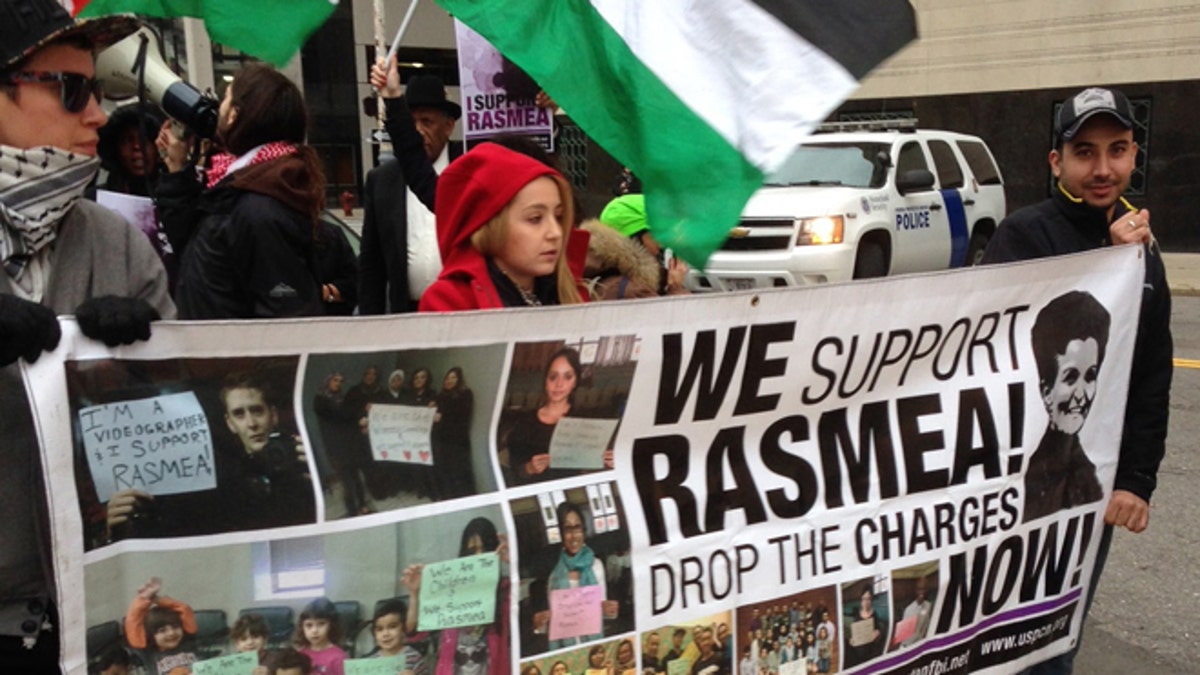
Nov. 4, 2014: Rasmieh Odeh's supporters march outside the federal courthouse in Detroit (AP)
DETROIT – A Chicago activist charged with lying to get U.S. citizenship told jurors Thursday that she would have disclosed her conviction for a series of bombings in Israel if she had fully understood the questions.
Rasmieh Odeh said she lives by a strict principle: tell the truth.
Odeh, associate director at the Arab American Action Network in Chicago, answered "no" on her citizenship application in 2004 when asked about any criminal history, despite spending a decade in an Israeli prison for bombings in 1969. One killed two people at a Jerusalem supermarket.
Odeh, 67, said she believed the government was seeking information about criminal history in the U.S., not in other countries, although the form asked if she had "EVER" been charged, convicted or imprisoned.
"It's not secret that I have been in jail. Everybody knows. ... How can I hide this thing?" Odeh told jurors, her voice rising. "I can't."
She said she would have disclosed her record from Israel if she had understood the questions and then sought "good people" to help her if it would have affected her citizenship application.
The federal trial ended for the day just as Odeh's attorney started to ask her about her 2004 interview with a U.S. immigration officer in Detroit. Earlier Thursday, that officer, Jennifer Williams, testified that she always asks applicants to disclose convictions from "anywhere in the world."
Odeh is widely respected in Chicago for her work with immigrants, especially Arab women. The criminal case against her has angered pro-Palestinian activists who accuse the U.S. government of trying to silence critics of Israel.
Odeh claims the Israeli military tortured her into confessing to the 1969 bombings, which also damaged the British Consulate in Jerusalem. With jurors out of the courtroom, U.S. District Judge Gershwin Drain warned Odeh that she could be held in contempt if she tried to testify about her treatment or the legitimacy of her conviction.
"Your guilt or innocence in the prior matter ... is not relevant," Drain said.
Odeh later told the jury that she was "falsely" convicted. Prosecutors objected, and the judge struck it from the record.
In 1994, when Odeh applied to enter the U.S. from Jordan, she also didn't disclose the Israel bombings. She said her brother in the Detroit area told her how to fill out the form because she understood little English.









































